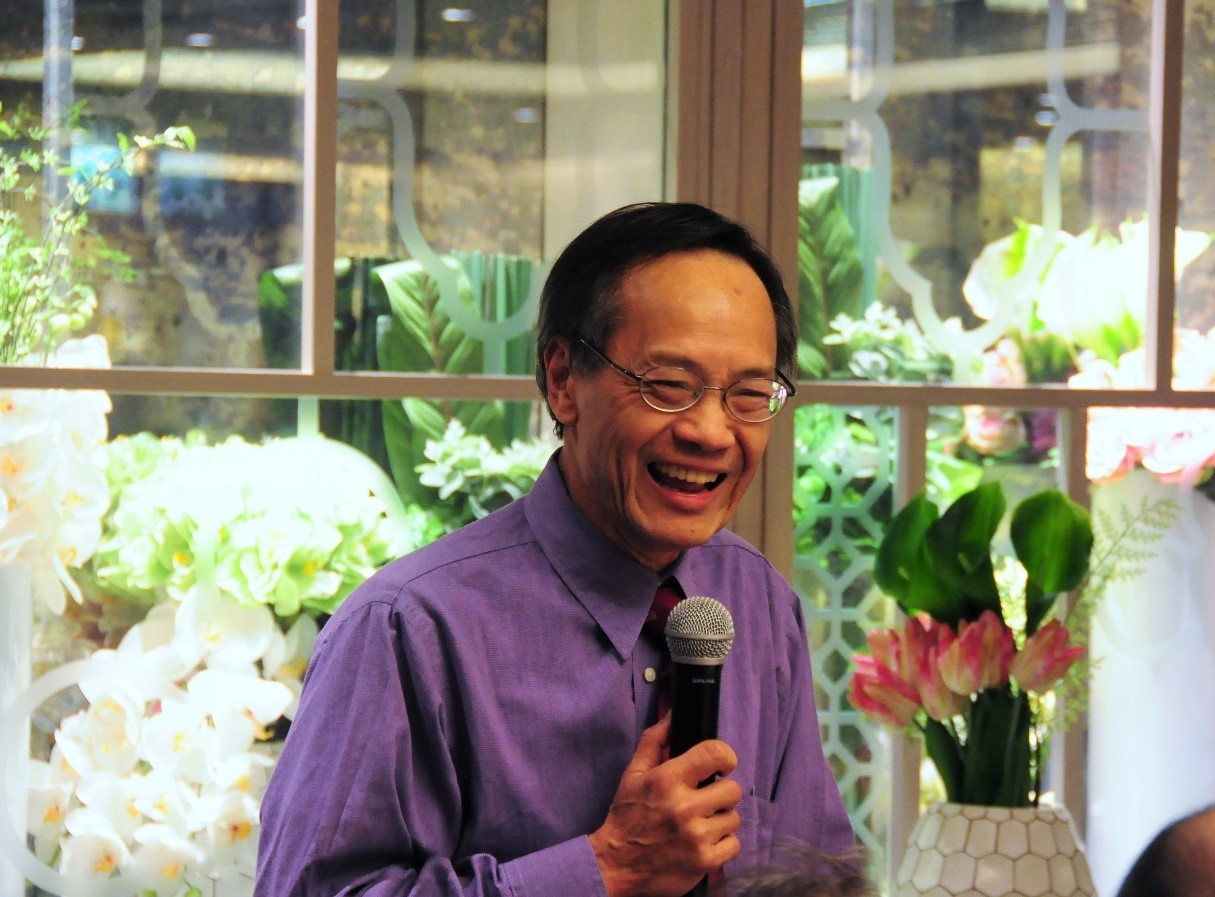
Photo taken in the retirement conference of Ka-Sing in 2018
Professor Ka-Sing Lau, a world leading mathematician, died from Lymphoma on 12 October 2021, in Pittsburg, USA.
Biography
Ka-Sing was born on 16 December 1948 in Guangdong, China. He obtained his bachelor’s degree from the Chinese University of Hong Kong in 1968 and received his PhD from University of Washington at Seattle in 1972, under the supervision of Robert R. Phelps. After spending two years in University of Chicago as an instructor, he joined the department of Mathematics in University of Pittsburgh in 1974 as an assistant professor, where he was promoted to associate professor in 1980 and full professor in 1986. In 1996, he joined the CUHK as Professor of Mathematics, and was the chairman of the department of Mathematics from 1996 to 2012. He had been Professor Emeritus of the CUHK since 2017. He was a visiting scholar in more than 10 universities and institutes, including Institute for Advanced Study at Princeton from 1982 to 1983. He was President of the Hong Kong Mathematical Society during 2002-2004. He served on the editorial boards of several journals, including the Asian Journal of Mathematics, the Journal of Fractal geometry, and the Science China Mathematics.
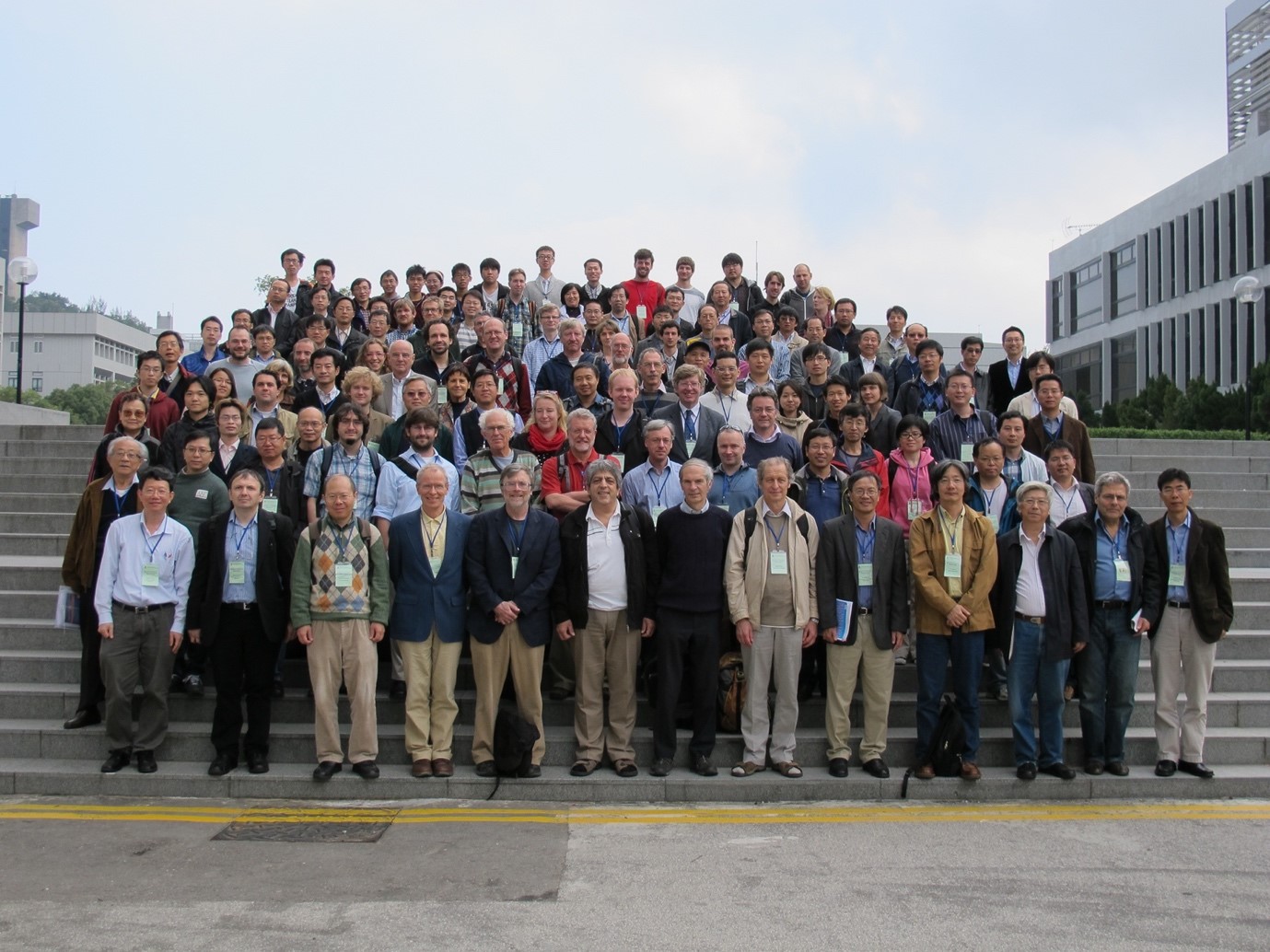
Photo taken in the international conference on Advances on Fractals and Related Topics in 2012
Research
Ka-Sing was a truly leading mathematician in the world, who had made outstanding contributions to many areas such as functional analysis, harmonic analysis, fractal geometry, wavelet theory and applied probability. He published more than 150 mathematical papers in these research areas, most of them appearing in the very top journals in mathematics. He also published 1 book and edited 3 conference proceedings. He was constantly on the list of the most cited mathematicians worldwide. He had secured numerous research grants, including 17 Hong Kong RGC grants, with 100% successive rate, 16 collaborative grants with colleagues from Australia, China, France, UK and USA. This is indeed a truly amazing record in mathematics.
Ka-Sing’s research started in functional analysis. In his early research he made many important contributions to the development of Banach space theory. During the last eighties and nineties, he expanded and developed his interest in harmonic analysis, differential equations, applied probability and wavelet theory. Starting from the early nineties, in particular after joining the CUHK, he laid a large part of his interest to the new area of fractal geometry.
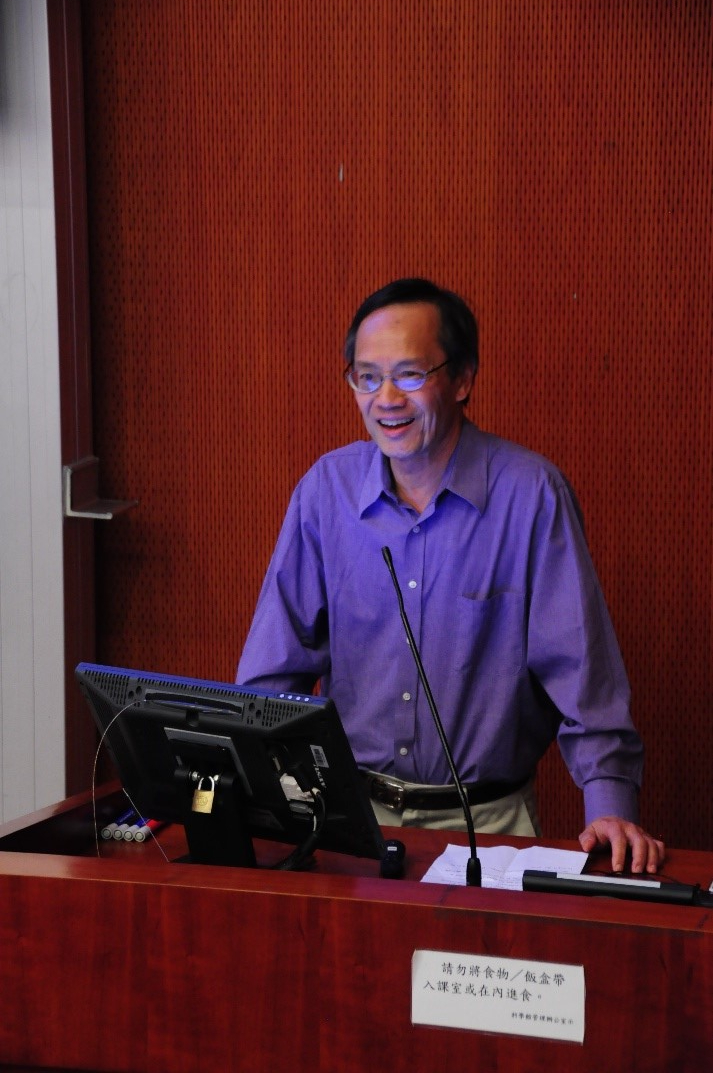
Photo taken in the retirement conference of Ka-Sing in 2018
Fractals occur naturally in many physical phenomena such as turbulence, percolation, diffusion-limit aggregation and special pattern formations. In mathematics they are presented as invariant sets and invariant measures of iterated function systems and dynamical systems. Their distinctive characteristics are the self-similarity and the scaling property. Together with classical theories and computer simulation, the area has had tremendous developments in the past three decades.
Ka-Sing was a leading figure in fractal geometry. He had made pioneering and fundamental contributions to almost every direction in fractal geometry, including dimension theory of fractal graphs, geometry of overlapping self-similar sets and measures, multifractal analysis, Ruelle operator for iterated function systems, Cauchy transformation of self-similar measures and Cantor boundary behaviours, self-similar and self-affine tilings, heat kernels on measure metric spaces, Laplacians on fractals and Dirichlet forms, Fuglede problems on fractals, hyperbolic structure of self-similar sets and Martin boundary. These developments are of paramount importance in the fractal community and related areas.
Ka-Sing was highly influential to the world mathematical community. This is largely due to his extraordinary mathematics knowledge, deep insight, great vision and leadership, as well as his friendly
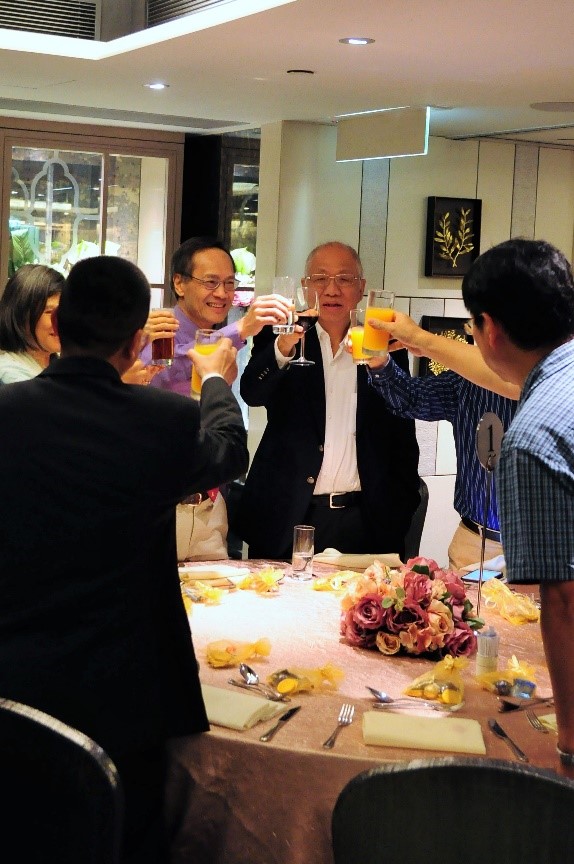
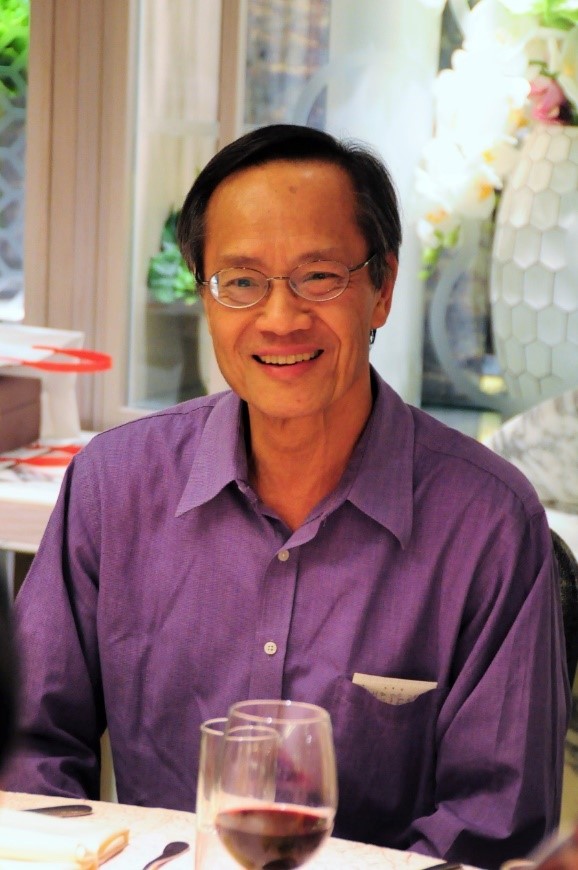
Photo taken in the retirement conference of Ka-Sing in 2018
and modest personality. As said by Robert Strichartz (a renowned professor from Cornell University), “The best way to solve a problem is to give it to Ka-Sing.”
Education in Outstanding Postgraduate Students
Ka-Sing was a great and enthusiastic educator and mentor. He had trained and mentored a highly impressive number of outstanding PhD students (24) and post-docs (12), most of them are currently working in the top universities in China, USA and Europe. Besides, more than 15 MPhil students were under his supervision.
Ka-Sing dedicated great efforts in training postgraduate students and postdocs in our department in the past 25 years. The excellence of his research helped CUHK Math attract a truly large number of good-quality postgraduate students, which gradually but steadily helped us build an international reputation among a large pool of potential students. Thanks to that and other measures Ka-Sing had implemented, our PhD program significantly flourished during his last few years at CUHK.
As far as his own students go, he had got students who won various thesis awards, both within CUHK and nationally; Ka-Sing also got students who published very early in prestigious journals such as Advances in Mathematics and Journal of Functional Analysis. On top of these achievements, his students and postdocs remember Ka-Sing for the kindness he always extended to them, both personally and professionally. Ka-Sing really treated them as friends and equals, and they remained close both among themselves and to Ka-Sing. Once they heard we were organizing a conference on fractals in honour of Ka-Sing’s retirement, they all immediately made plans to fly back from all over the world. The cohesion Ka-Sing brought about is truly spectacular, to say the very least.
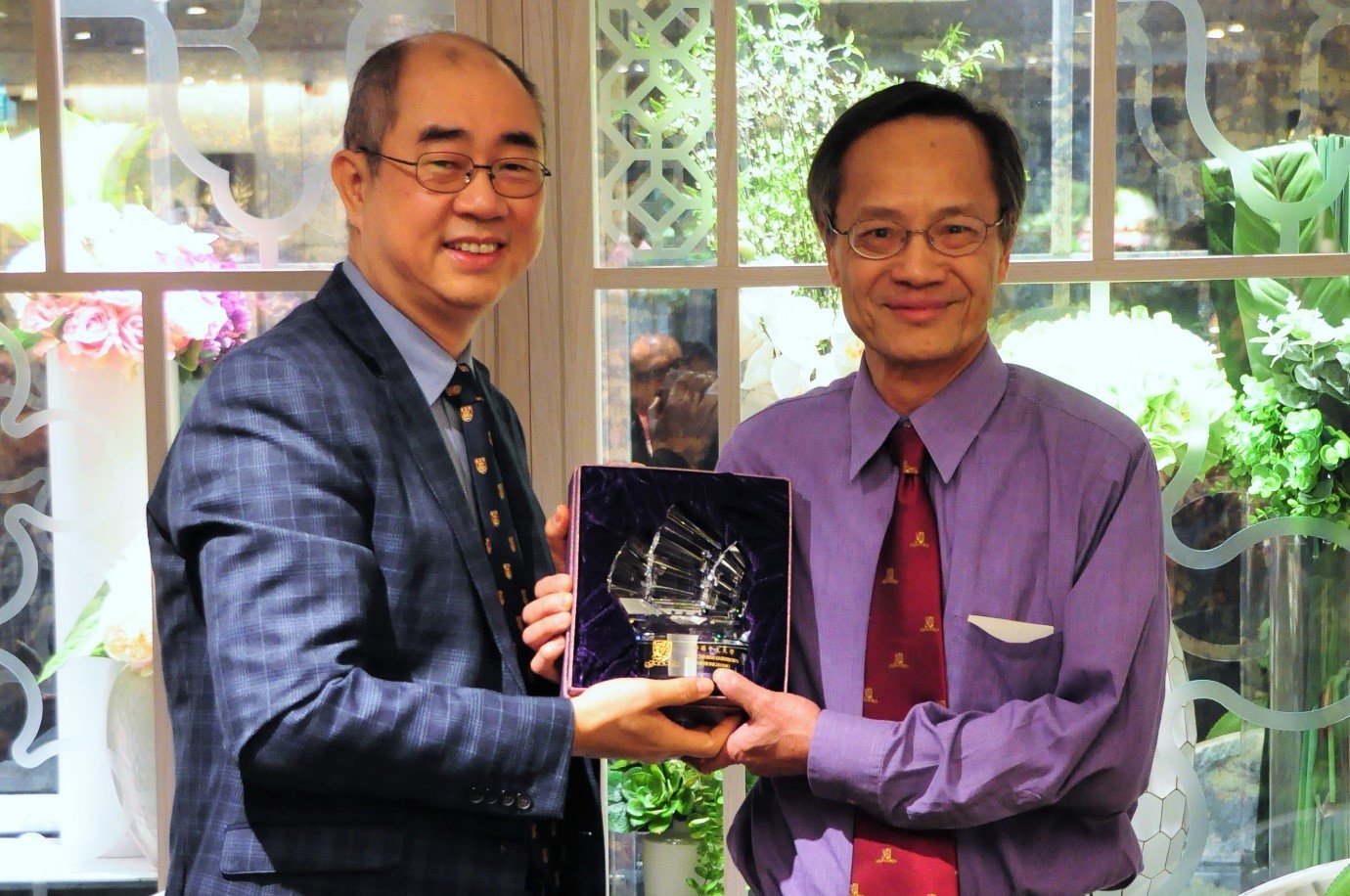
Photo taken in the retirement conference of Ka-Sing in 2018
Excellent Leadership in Department Administration
Ka-Sing had remarkably led Department of Mathematics 1996 to 2012. By 2002, he helped the Department to get stabilized during a quite chaotic period. Then by 2008, the Department was well noticed and recognized, both within CUHK and the international community. At the end of his leadership in 2012, people marvelled at all our achievements with admiration. In a period of 16 years, he steered the department from staggering to striding.
Ka-Sing faced a very hard time during most of his time with the department. There were Hong Kong property crash in 1998, Asian financial crisis in 2003, and world financial crisis in 2008, .... Every time, a series of severe challenges were compounded on an already diminished departmental budget. Nonetheless, Ka-Sing surprised the whole university by bringing our department to good prosperity without additional resources. It is easy to bring in new faculty members to reform; yet he had accomplished a much more difficult task admirably. He brought out the strength hidden inside a stumbling body. He could always find a suitable role for each of us to devote our strength and contribute.
It took so many years of Ka-Sing’s careful resource management and his proof of impressive success to gain more resource allocation from the university. During the later period of his leadership, he still had to make full use of the existing strength and very limited resource. He took the rare opportunities of recruitment to establish a proper process and prudent direction of hiring. This had great influence on the continuation of keeping the existing talent and attracting new blood. As such, his successors had a solid rock to build on, not to mention the new positions available to the department, which largely is due to his long-time and continued tremendous effort.
Besides his achievements changing the Department of Mathematics into a truly outstanding one, Ka-Sing had played an indispensable role in some crucial stages of the healthy development of the Institute of Mathematical Science (IMS). When he came to the CUHK as the chairman of the Department in 1996, he also became the associate director of the IMS until 1998. That was the early and yet crucial period for the IMS, which was transformed structurally from a platform of disseminating mathematical developments (a unit in the Science Faculty with very short-term funding from the government) into a substantial research centre that emphasizes excellence both in top quality research and advanced education in mathematics, and became an institute under CUHK, independent of the Science Faculty (and with capability to attract sufficient private funding). Shared the same vision with Professor Shing-Tung Yau on building a world-class research centre in Mathematics, Ka-Sing had spent a great amount of time on the structure and planning of detailed academic programs of the IMS and great effort convincing both the University administration and even some of our colleagues on the importance of establishing the world class IMS. Especially, the establishment of the PhD program at the IMS has been a crucial program for the IMS, which has been extremely successful and is an important product of the close collaboration, between the IMS and Department of Mathematics, under his unique and great leadership.
With Ka-Sing’s continued strong support, the IMS and Department of Mathematics had jointly organized numerous academic activities including seminars, mini-courses, workshops and conferences of various scales. In particular, in 2004, we organized successfully the Third International Congress of Chinese Mathematicians which attracted more than seven hundred distinguished mathematicians from around the world. As the co-chair of the organizing committee of this event, he provided crucial leadership and management. We still remember the hard work and energy he put for the publication of more than 450 pages proceeding of the Congress! He also organized several theme-programs on fractal geometries and workshops at the IMS, which led high level scientific exchange, and fruitful research production. Under his leadership, the Department of Mathematics had been also in strong support of the IMS’ outreach programs, such as Hang Lung Mathematical Award, which had attracted numerous talented youths to the field of Mathematics.
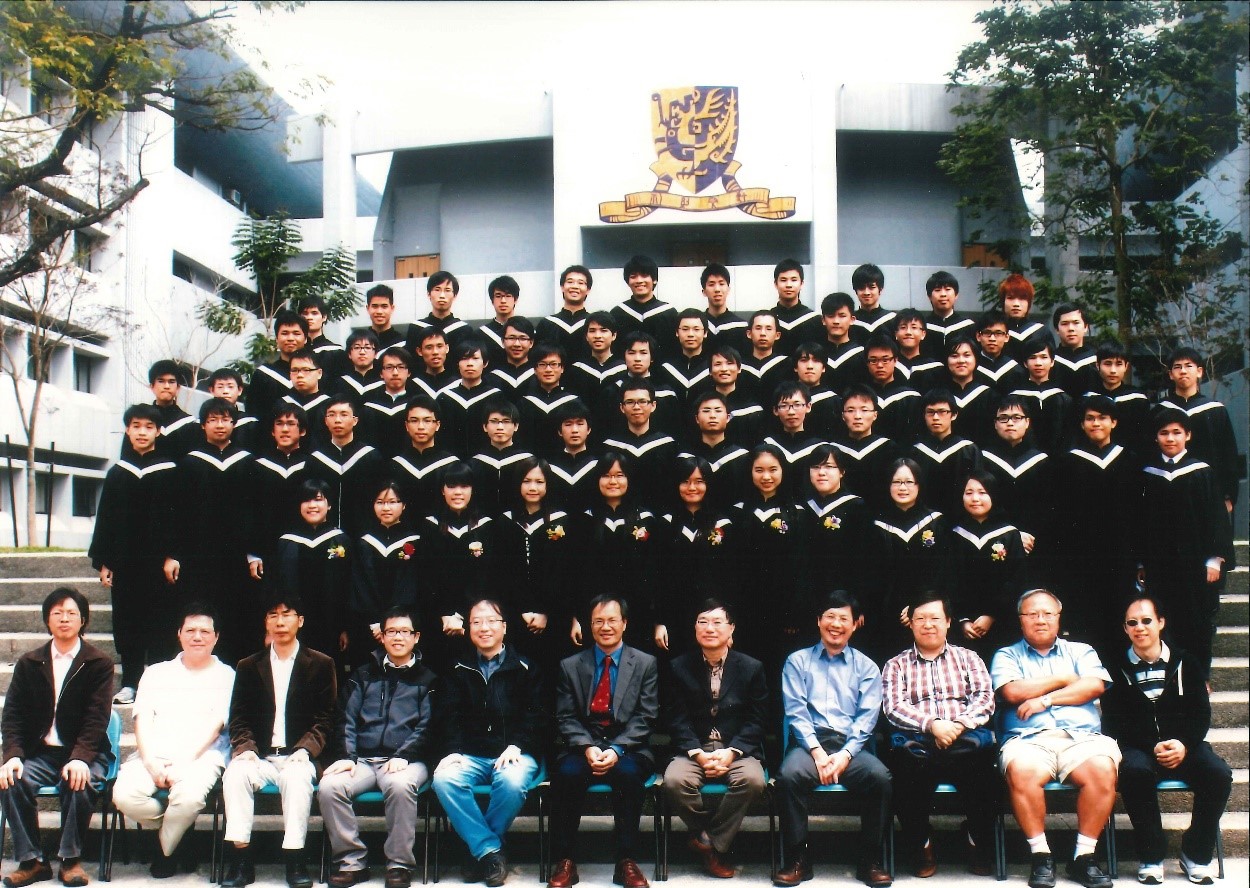
Photo taken at the 2011 graduation
CUHK Math and all our colleagues benefited tremendously from his scientific vision, mathematical insights, administrative skill, modesty, and friendship. Under his 16-year chairmanship, CUHK Math had been like a very big and happy family, his colleagues all feel proud to be part of this big family, and he was the person we can always rely on whenever we had problems or challenges, both personal, academical and departmental.
Besides talent among faculty members, Ka-Sing had made several pioneering drives in CUHK to attract undergraduate talent. We established Enrichment Mathematics, instilled new admission strategies, launched internship and exchanges, developed outreach branches EPYMT and HLMA, kicked off double degree MIE program. Throughout the years, wonderfully capable students poured in and then shone brightly after graduation, in both academia and in other sectors such as business or engineering. To accomplish these unprecedented works, there were tremendously sophisticated work inside and outside the university that nobody could really imagine, other than him.
All along, Ka-Sing had provided brilliant ideas and suggested crucial details and strategies. More importantly, he entrusted our colleagues with great acceptance of our different opinions to make things happen, indeed, marvellous work was resulted from time to time. This had given the colleagues huge confidence, pride, and an immense sense of belonging to the department.
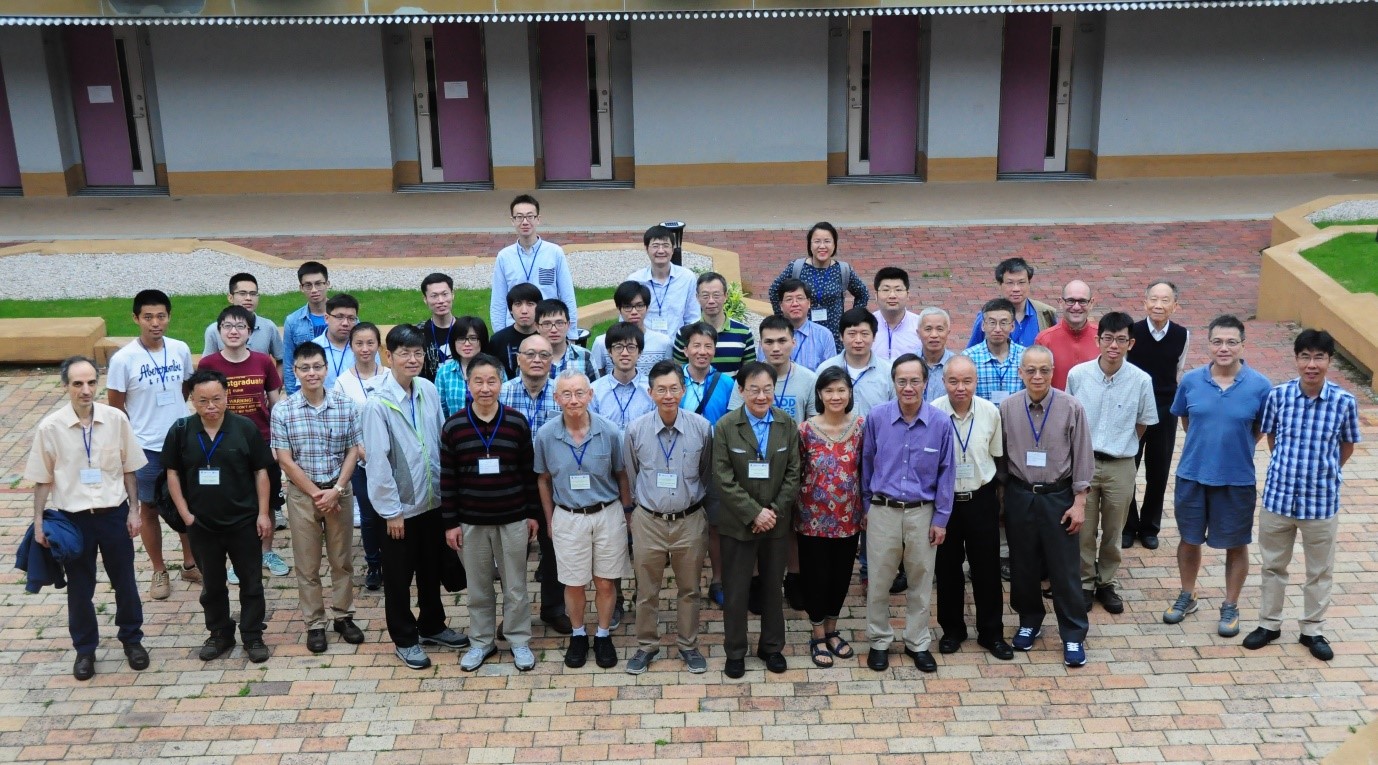
Photo taken in the retirement conference of Ka-Sing in 2018
Many staff began to serve under Ka-Sing when they were still young. All of them are grateful to Ka-Sing for a fulfilling career. Ka-Sing have made changes to the lives of them, to his students, and many others.
Ka-Sing was an unforgettable master, advisor, colleague and friend. We will miss him always.
From all the colleagues
at Department of Mathematics
The Chinese University of Hong Kong
